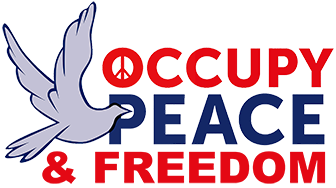Karen Talbot
The Real Reasons for War In Yugoslavia- Backing up Globalization with Military Might .pdf
United States and its NATO underlings clearly were emboldened by
their “success” in bombing Yugoslavia, by their earlier bombing of the
Serb areas of Bosnia, and by their victories in the other remnants of
Yugoslavia ? Croatia, Slovenia, and Macedonia. Burgeoning military alliances,
with the U.S. at the helm, are now more likely than ever to try to intervene in a
similar way against any country that refuses to be a new-world-order colony by
allowing its wealth and labor power to be plundered by transnational corporations
(TNCs). The assault against Yugoslavia threw open the floodgates for new wars,
including wars of competition among the industrial powers. President Bill Clinton
praised NATO for its campaign in Kosovo, saying the alliance could intervene
elsewhere in Europe or Africa to fight repression. “We can do it now. We can do
it tomorrow, if it is necessary, somewhere else,” he told U.S. troops gathered at the
Skopje, Macedonia, airport (Agence France Presse, 1999).
It is hardly surprising that Clinton and the leaders of the other NATO countries
glorified the aggression against Yugoslavia as “preventing a humanitarian catas?
trophe,” “promoting democracy,” and “keeping the peace” against a “Hitler-like”
dictator who would not adhere to peace agreements. The public was repeatedly
assured that the means ? the bombing of the people of Yugoslavia ? were
justified by the ends. The media hype, including unprecedented demonization of
the Serbs, was designed to mold public opinion to accept the “justice” of the war.
Karen Talbot is the Director of the International Center for Peace and Justice (ICPJ, 550 Pacheco Street, San Francisco, CA 94116; e-mail: icpj@igc.com) and a member of the international Executive Committee of the World Peace Council. She is a member of the Women’s International League for Peace and Freedom (San Francisco). She helped organize and participated as a speaker in many events and actions against the Iraq war, including a very successful people’s hearing, and was similarly involved around opposition to the NATO/U.S. bombing of Yugoslavia. For 20 years she was an NGO representative to the U.N. on behalf of the World Peace Council, the Gray Panthers, and the International Center for Peace and Justice (ICPJ). She received the United Nations Messenger of Peace
Award on behalf of the Gray Panthers (as Executive Director) and spoke before the Third Special Session of the U.N. General Assembly on Disarmament. In 1994, she received the Dr. Martin Luther King, Jr., Award for Peace, presented in San Francisco. She has given countless talks and written extensively. She edited the millennium double issue of CovertAction Quarterly (Spring/Summ


Recent Comments